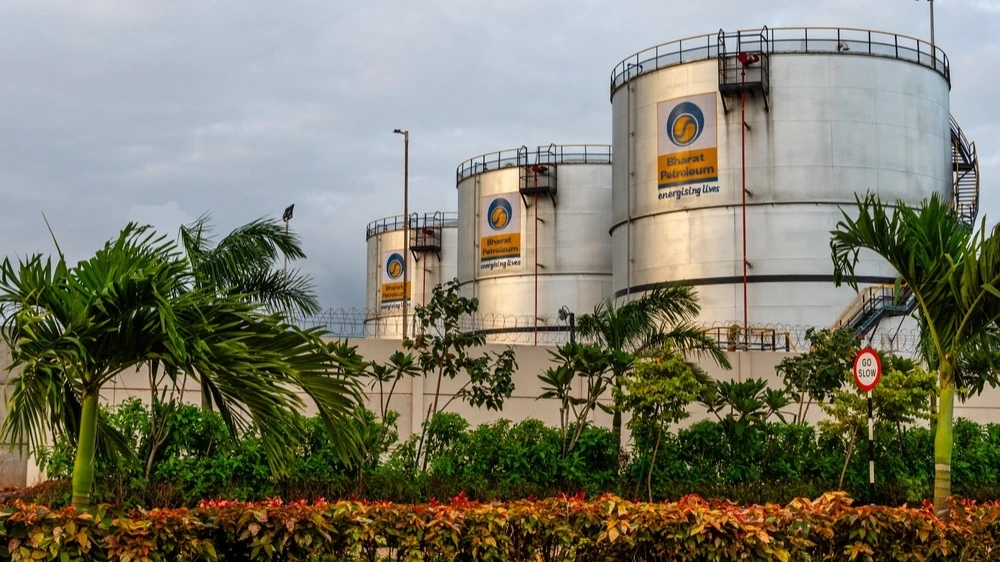Oil soared 5% after new US sanctions. They will affect crude exports from Russia
The EU plans to impose a 19th package of sanctions on Oct. 23 to stop imports of Russian LNG by 2027

Oil prices rose sharply in trading on October 23 after the United States imposed sanctions against Russia for the first time since the beginning of Donald Trump's second presidential term. The restrictions target Russia's two largest oil companies, Rosneft and Lukoil. Indian refiners are reconsidering their purchases of Russian crude, while the "shock wave" from the restrictions has also affected the Chinese market, Reuters and Bloomberg reported. But analysts are in no hurry to sound the alarm.
Details
After the announcement of new U.S. sanctions against Rosneft and Lukoil, futures for benchmark Brent and U.S. WTI crude jumped more than $2 per barrel. The increase in value is also supported by an unexpected reduction in U.S. oil inventories, Reuters reports. During trading on October 23, the cost of December contracts for delivery of Brent rose by more than 5% and exceeded $65 per barrel, although then the rate of appreciation slowed to about 3%. Contracts for the U.S. grade WTI added about 4%.
U.S. sanctions have already led to Indian state-owned refiners saying they are reviewing their purchases of Russian oil to make sure they are not getting supplies directly from Rosneft and Lukoil, Reuters wrote. But the agency's sources said such purchases even before the sanctions took place mostly through intermediaries. Private company Reliance Industries, India's largest buyer of Russian oil, plans to adjust its imports from Russia in line with the Indian government's recommendations, Reuters reported. According to the agency's sources, Reliance intends to sharply reduce imports of Russian oil due to new Western sanctions. Other Indian refiners may also make significant cuts in purchases, Reuters added.
The Chinese refining market has also deeply felt the "shock wave" of new restrictions from the United States, Bloomberg said. China gets up to 20% of its crude oil imports - about 2 million barrels per day - from Russia, the agency noted.
What the analysts are saying
"If New Delhi cuts purchases under U.S. pressure, we could see a reversal of Asian demand towards U.S. crude, leading to higher prices in the Atlantic," Reuters quoted Phillip Nova analyst Priyanka Sachdeva as saying.
Claudio Galimberti, director of global market analysis at Rystad Energy, considers the jump in oil prices to be "more of a reflex reaction of the markets rather than a structural shift". "Almost all the sanctions imposed against Russia over the past 3.5 years have failed to significantly affect either the country's production volumes or its oil revenues," the analyst said.
Galimberti cited the lifting of production restrictions for OPEC+ countries, which could lead to a supply surplus, as a key factor in pricing the oil market. "The three factors that I will be watching for by November are the winding down of OPEC+ restrictions, the accumulation of oil reserves by China, and the military conflicts in Ukraine and the Middle East - just in that order," the expert emphasized.
Context
Representatives of the European Union countries have agreed on the 19th package of sanctions against Russia, and the heads of the bloc's member states intend to approve it on October 23, Denmark, which now holds the EU presidency, said. The new package calls for an end to purchases of Russian LNG by 2027 and the blacklisting of "shadow fleet" vessels that allow the sale of oil and oil products to circumvent Western sanctions, the BBC reported. The European Union has long imposed almost every possible sanction against Xi except gas sanctions - and the last few packages have been aimed at closing loopholes through which the Kremlin circumvents those restrictions, the BBC noted.
The UK imposed sanctions on Rosneft and Lukoil on October 15.
This article was AI-translated and verified by a human editor
